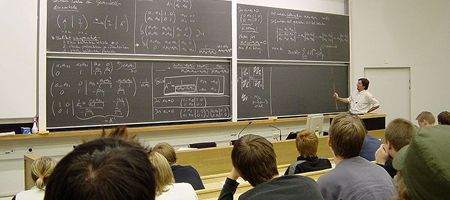It’s not just artistic types that find math a turn-off and try to avoid having to deal with it – scientists do the same.

A new study by University of Bristol biologists shows that if a piece of research is packed full of mathematical equations, other scientists tend to ignore it.
Scientific articles laden with equations on every page are seldom referred to by other scientists, they found. Indeed, the most math-heavy articles are only half as likely to be referenced asthose with little or none.
“This is an important issue, because nearly all areas of science rely on close links between mathematical theory and experimental work,” says Dr Tim Fawcett.
“If new theories are presented in a way that is off-putting to other scientists, then no one will perform the crucial experiments needed to test those theories. This presents a barrier to scientific progress.”
The ideal way to solve the problem, clearly, would be to improve the math education of science graduates so that they could better understand all those pesky equations.
Another would be for people writing papers to remember the possible shortcomings of their readers and explain their assumptions and workings more thoroughly.
Alternatively – and easiest of all – they could simply hide all the tricky stuff away where nobody really has to look at it.
“The top journals want articles to be extremely concise, with many of the technical details going in an online appendix,” says Fawcett.
“Fortunately, our study suggests that equations in an appendix have no effect on citation rates. So moving some of the equations to an appendix may be the most pragmatic solution.”






